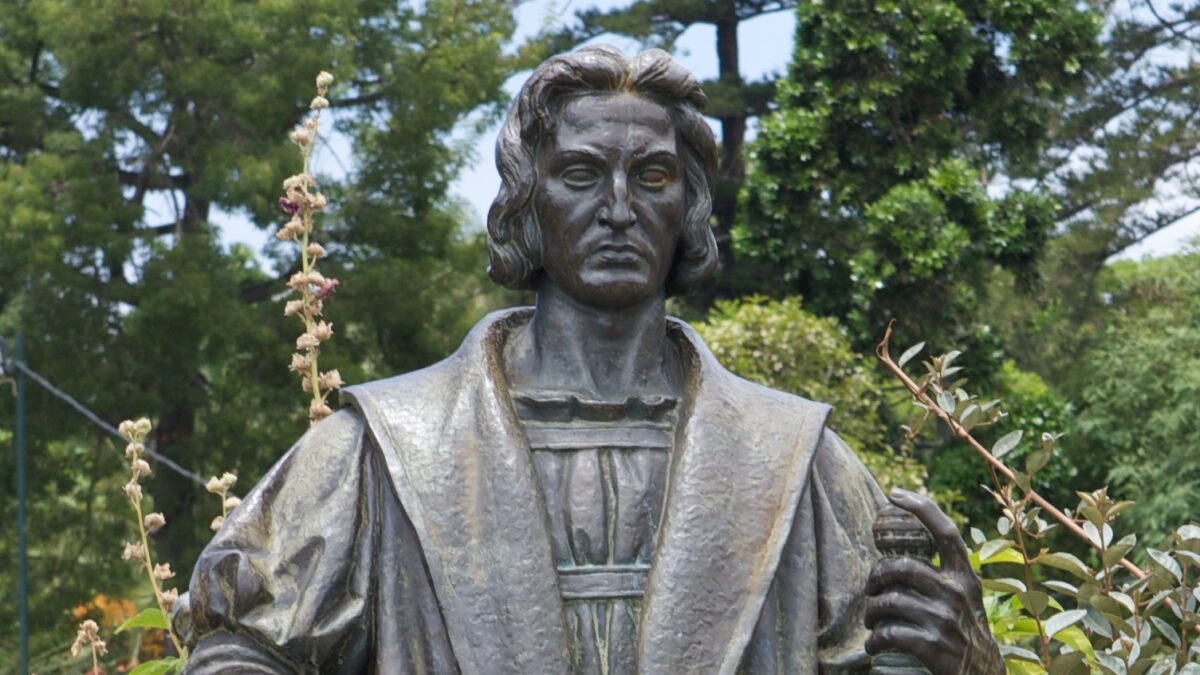FAIRFAX COUNTY, Va. — Last Tuesday, teachers at Langley High School in northern Virginia, outside the nation’s capital, readied students for Monday’s Columbus Day federal holiday for 15th-century Italian explorer Christopher Columbus with a 17-slide PowerPoint presentation.
The only thing: It wasn’t a lesson about Columbus — only mentioning him three times in a fleeting way — but rather it was a deep dive into “equity and inclusion,” “Indigenous Rights & Identity in America,” “Appropriate Terminology” and the “racial discrimination and/or insensitivity” that Native Americans face today and “why that is commonplace in American society.”
While Columbus is most certainly a controversial historical figure for travels that became a precursor for empire building, the lesson’s intentional “pivot,” as the local school board calls it, underscores how it is that in the new racism of the “oppression matrix,” the stories of historical figures and immigrant groups deemed politically incorrect are erased not much different than social justice warriors argue the narratives of people, like Native Americans, have been erased in the teaching of history.
The solution is not to erase communities and people — like the Italian American community to whom Columbus is an important figure — but to provide fair and honest representations, which are very much available to youth.
The Langley High School curriculum, obtained by Independent Women’s Network and published here for the first time, was first taught at Langley High School after the local 12-0 Democratic members of the Fairfax County school board passed a motion on July 23, 2020, declaring: “As a community that values diversity, equity, inclusion, and history, Fairfax County Public Schools should pivot from acknowledging Columbus Day, and instead celebrate Indigenous People’s Day.”
The resolution came as the school board renamed schools, launched a war on merit at local Thomas Jefferson High School for Science and Technology targeting Asian students, and ignored the cries of parents to reopen schools. It also emerged amid a wider movement, dating back over the past decade, to replace Columbus Day with Indigenous People’s Day.
The lesson at Langley reveals how the activist agenda has penetrated school curricula, in an effort launched a decade ago with school districts, like San Francisco, and organizations like the Southern Poverty Law Center. The lesson opens on slide three with the school’s “Statement of Acceptance,” “respecting each person’s unique identity, perspective, and learning style.” It quickly moves to a discussion about the words “Celebration” and “Honor/Honoring” and, indeed, pivots immediately to the school board’s 2020 manifesto to “pivot from acknowledging” Columbus Day.
Langley High School Columbu… by The Federalist
By slide eight, students watch a Ted-Ed video, “History v. Christopher Columbus,” of almost six minutes that casts Columbus as a “ruthless explorer,” in a fictional trial against Columbus that concludes his narrative as a “hero” must be understood today of him as a “villain.”
By slide 12, students are instructed: “Take a moment to reflect independently on the ways in which Native Americans are subject to racial discrimination and/or insensitivity and why that is commonplace in American society.”
The next moment, in slides 13 and 14, they are told to evaluate “Team Names and Mascots,” with images of the abandoned mascots of the previously named Cleveland Indians, Washington Redskins, and Florida State University Seminoles. After watching a short New York Times video, “Confronting Racist Objects,” teachers asked them: “If a mascot or team name is clearly offensive to a living cultural group, should it continue to be used? If yes, why? If no, what can be done to bring about change?”
By slide 15, students listened to a clip from a TedTalk by photographer Matika Wilbur, promoting an initiative, Project 562, “dedicated to photographing contemporary Native America.”
As a nation, we don’t have to erase history in order to teach it with accuracy and dignity for the people for whom the history means something important. That’s a lesson our children should get from the narratives of Native Americans to the legacy of Christopher Columbus.
Postpublication update: In response to a query, Kathleen Miller, a spokeswoman for Fairfax County Public Schools said, “Langley High School leadership indicates that the school has not received any complaints about this lesson. Our school leaders welcome conversations with any Langley parents who have questions or concerns.” She didn’t respond to questions about who created the content.









